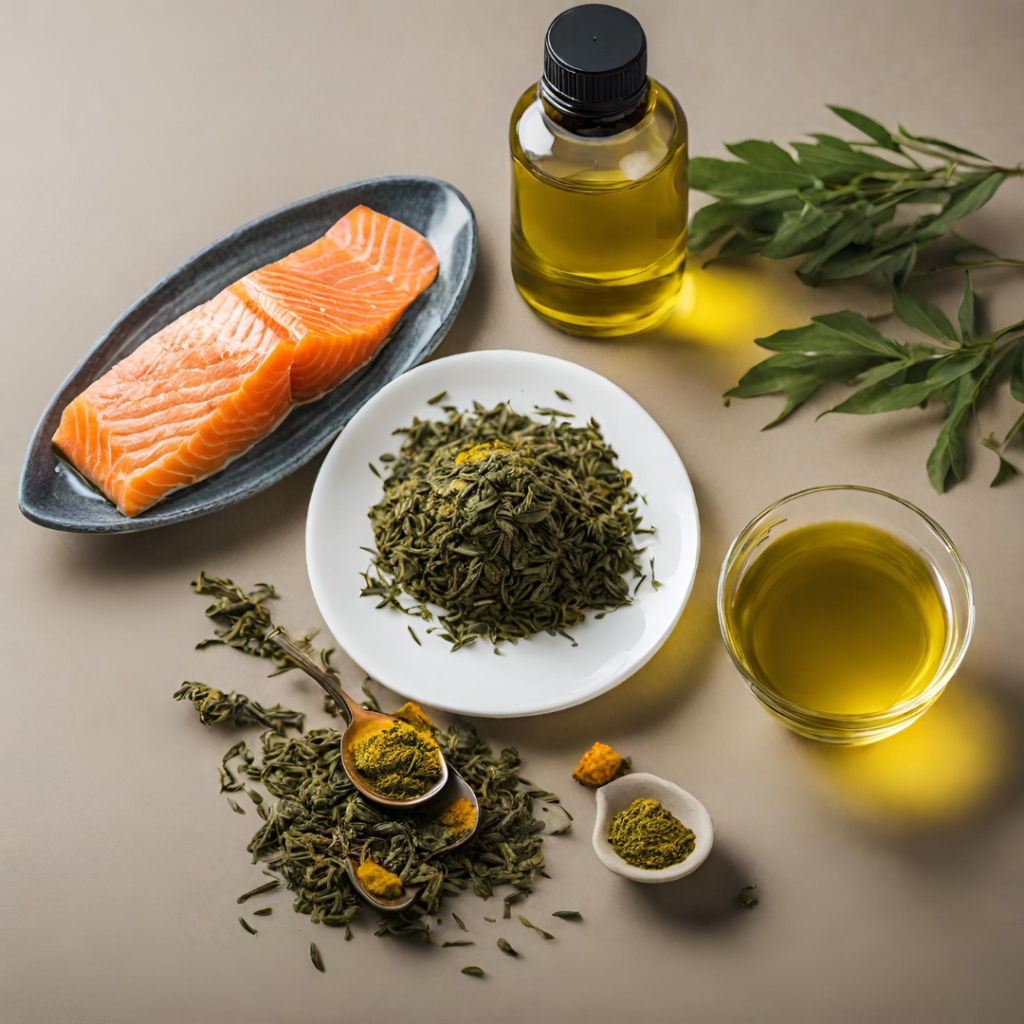How Free Radicals and Oxidative Stress Drive Chronic Inflammation
Inflammation serves an important purpose—it’s the body’s natural response to injury or invading microbes. Acute, short-term inflammation helps destroy threats and stimulate healing at the site of damage. However, free radicals and oxidative stress can trigger unnecessary chronic inflammation that gradually harms your body.
Free radicals are unstable molecules formed through normal cellular metabolism, exercise, and exposure to food, water, and air toxins. Causes include pesticides, industrial chemicals, cigarette smoke, and smog.
These free radicals steal electrons from healthy molecules, turning them into free radicals and perpetuating a chain reaction of cellular damage called oxidative stress. Your endogenous antioxidants try to neutralize them, but excessive free radicals overwhelm your defenses.
Free radical damage and oxidative stress not only directly harm cells but also provoke
inflammatory responses. The immune system reacts as if the free radicals are foreign invaders, creating widespread inflammation even without a pathogen, injury, or threat present. Sources of inflammation like obesity, poor diet, chronic stress, and infections also spur more free radical production as the body strains itself. This results in an endless loop of free radicals, oxidative stress, and unneeded inflammation.
Thankfully, certain antioxidants can help break this cycle by scavenging free radicals before they harm cells and cause inflammation. Key anti-inflammatory, and antioxidant nutrients include omega 3s, turmeric, green tea, and CBD oil.
What is Inflammation, and Why Do We Need Anti-Inflammatory Nutrients?
Understanding Acute Versus Chronic Inflammation
Inflammation gets villainized, but it’s actually an essential function of your immune system. When you encounter a threat like a sprained ankle or bee sting, localized acute inflammation flares up on the spot. This involves increased blood flow, swelling, heat, redness, and pain around the injury.
White blood cells and immune chemicals rush to the site to destroy invading bacteria, remove debris and damaged tissue, and start repairs – think of it as an on-site construction crew. This natural response helps you heal.
Once the threat is gone, acute inflammation normally dissipates since it is no longer needed. But with chronic inflammation, your body acts as if it’s constantly under attack, even when no injury or infection exists. The immune system overreacts and creates persistent low-grade inflammation body-wide, causing gradual tissue damage.
What triggers this unnecessary chronic inflammation? Causes include obesity, poor nutrition, stress, toxins, lack of exercise, and more. Modern high-calorie diets, sedentary lifestyles, constant stress, and environmental pollutants promote inflammation.
Studies now link chronic inflammation to heart disease, diabetes, cancer, autoimmunity, neurodegeneration, and accelerated aging. It’s crucial to manage inflammation before it causes long-term issues.
The good news? Certain nutrients like curcumin, omega-3s, green tea, and CBD have research backing their ability to reduce inflammatory markers and protect cells from damage. A diet rich in anti-inflammatory foods along with targeted supplements can help calm chronic inflammation for better health.
How Omega 3s, Turmeric, Green Tea, and CBD May Impact Inflammation
I often get asked about my favorite supplements for optimizing health. Four that I frequently recommend are omega-3 fatty acids, turmeric, green tea, and CBD oil. Each provides unique inflammation-fighting antioxidant activity according to existing research.
- Omega 3s are healthy polyunsaturated fats found abundantly in fatty fish. The omega-3s EPA and DHA in particular may help balance levels of inflammatory messenger chemicals in the body. Omega 3s also support overall cellular health.
- Turmeric contains curcumin, which has been used traditionally for ages to promote well-being. Modern studies demonstrate curcumin has natural antioxidant properties and can minimize factors that can lead to inflammation.
- Green tea is rich in protective plant compounds like EGCG. These powerful botanical
antioxidants give green tea advantages for health. Research shows that EGCG supports the body’s innate defenses and healthy inflammation response. - CBD is a compound in hemp that interacts with the body’s endocannabinoid system,
which regulates various processes. Early studies report CBD may support the body’s natural inflammatory response, reduce oxidative stress, and promote comfort.
These four nutrients have complementary antioxidant activities according to scientific literature and research suggests they may help maintain optimal health, especially when combined. Always consult your physician before starting supplements. Further human studies on omega 3s, turmeric, green tea, CBD, and inflammation are warranted.
The Potential Benefits of Anti-Inflammatory Nutrients
Initial research on omega 3s, turmeric, green tea, and CBD is promising. While human studies
are still ongoing, current findings suggest these anti-inflammatory nutrients may:
- Help maintain joint comfort and healthy muscle function
- Support digestive health and comfort
- Aid mental clarity and mood
- Encourage healthy aging
Assist post-workout recovery - Provide soothing topical relief
- Boost overall wellness
According to the existing scientific literature, these four compounds offer complementary antioxidant mechanisms that promote the body’s natural inflammatory response. Omega 3 fatty acids support cellular health and balance inflammatory chemicals. Turmeric contains the antioxidant curcumin which assists the body’s innate processes. Green tea provides EGCG and other protective botanicals. Early studies report CBD from hemp interacts with receptors that modulate bodily processes.
While more research is still needed, these nutrients show potential for optimizing overall wellness according to current findings. As with any supplement, check with your physician before significantly increasing intake, especially if you have underlying health conditions. It’s promising that omega 3s, turmeric, green tea, and CBD may aid the body’s normal inflammation response and provide antioxidant benefits according to the available science. However, specific health claims cannot be made until large-scale human trials are completed. Talk to your doctor to see if these anti-inflammatory nutrients could be beneficial.
How to Add More Omega 3s, Turmeric, Green Tea, and CBD into Your Routine
It’s easy to fit more of these inflammation-fighting nutrients into your day:
Omega 3s: Consume fatty fish like salmon and mackerel 2-3 times per week or take 1-2 grams daily of fish oil supplement. Walnuts, chia seeds, flaxseeds, and Brussels sprouts also provide omega-3 alpha-linolenic acid (ALA).
Turmeric: Add 1⁄4 to 1⁄2 tsp turmeric powder to dishes daily. Curries, roasted veggies, eggs, rice, or soups are great vehicles. Supplement with 400-600 mg turmeric capsules up to three times daily.
Green Tea: Sip on pure, unsweetened organic green tea throughout the day. Have 2-3 cups for an anti-inflammatory boost. Choose quality loose-leaf or bottled tea.
CBD Oil: Follow package dosing instructions. For general wellness, most benefit from 25-50mg CBD per day. Use tinctures or gummies sublingually, or apply CBD topicals to affected areas.
Obtaining nutrients through food as much as possible before supplementing is ideal. An anti-inflammatory diet and some thoughtful lifestyle tweaks can make a big dent in chronic inflammation.
Conclusion
Initial research indicates omega 3s, turmeric, green tea, and CBD may help maintain the body’s normal inflammatory response due to their antioxidant properties. While human trials are still ongoing, the current science surrounding these nutrients is promising.
For those looking to optimize wellness, it may be worthwhile to learn more about these anti-inflammatory compounds. As with any supplement, check with your physician first, especially if you have underlying health conditions.
If you do plan to increase your intake of omega-3s, turmeric, green tea, or CBD, remember that each offers unique benefits. Combining them may provide more comprehensive antioxidant coverage than relying on just one. However specific claims cannot be made until more definitive clinical trials are completed.
Omega 3-rich foods like salmon or walnuts can be incorporated into a balanced diet. Turmeric can be consumed as a spice. Green tea makes a tasty beverage. And hemp-derived CBD oils and topicals are becoming more widely available.
While current research shows promise, these anti-inflammatory nutrients should not replace professional medical treatment. Chronic issues require a doctor’s care. Always talk to your provider before starting any new supplement routine.
The important thing is to learn more about science-backed natural wellness approaches like omega 3s, turmeric, green tea, and CBD. While not medical advice, a healthy, anti-inflammatory diet, and targeted nutrients may assist the body’s innate processes. Further research into these compounds for optimizing health and well-being is expected.






